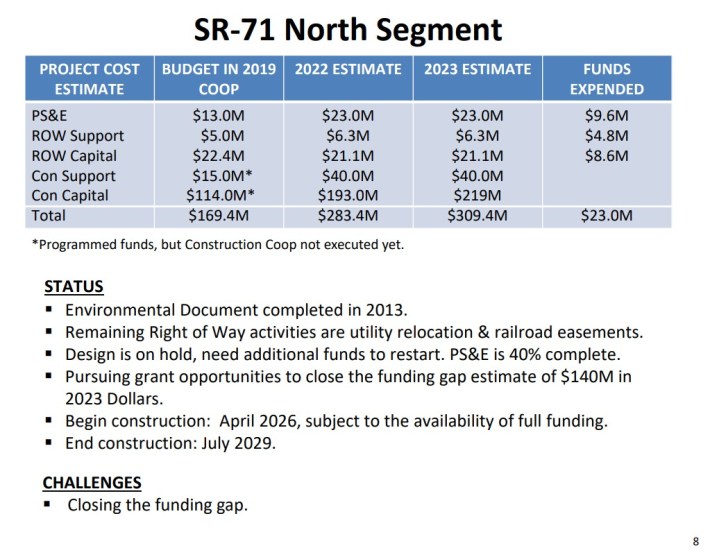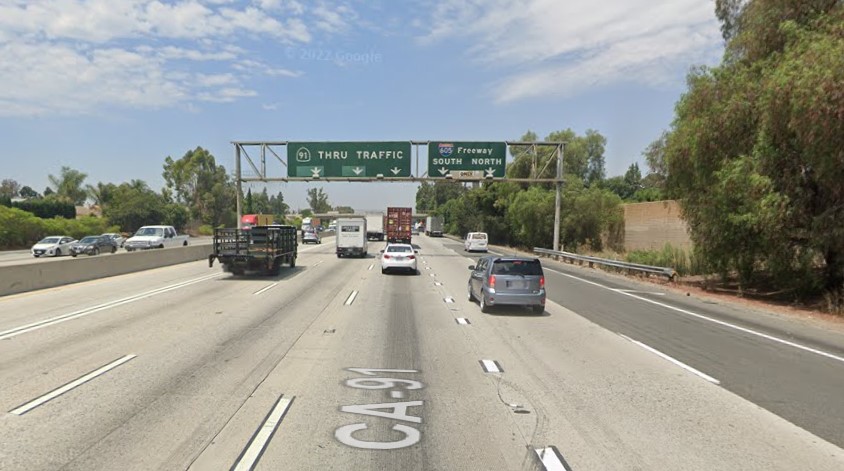At this Thursday's meeting of the Metro board Construction Committee, Metro staff are recommending the board approve $65 million for construction management services for two Metro/Caltrans 91 Freeway widening projects.
The two 91 Freeway expansion projects, both part of Metro's Gateway Cities SR-91/I-605/I-405 “Hot Spots” Program, are located in already pollution-burdened communities in Southeast L.A. County. Metro's staff report notes that these highway widenings are fully funded via Measure R sales tax and state TCEP (Trade Corridor Enhancement Program), though construction management will be paid by both Measures R and M revenue.
The 91 Freeway explansion projects include:
1 - Widening the Westbound 91
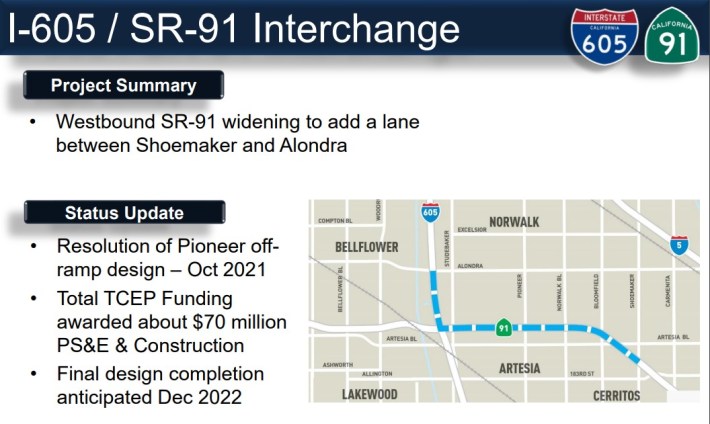
Metro and Caltrans plan to add one additional lane for nearly four miles between Shoemaker Avenue and the 605 Freeway exit at Alondra Boulevard. The widening is located in the cities of Artesia and Cerritos.
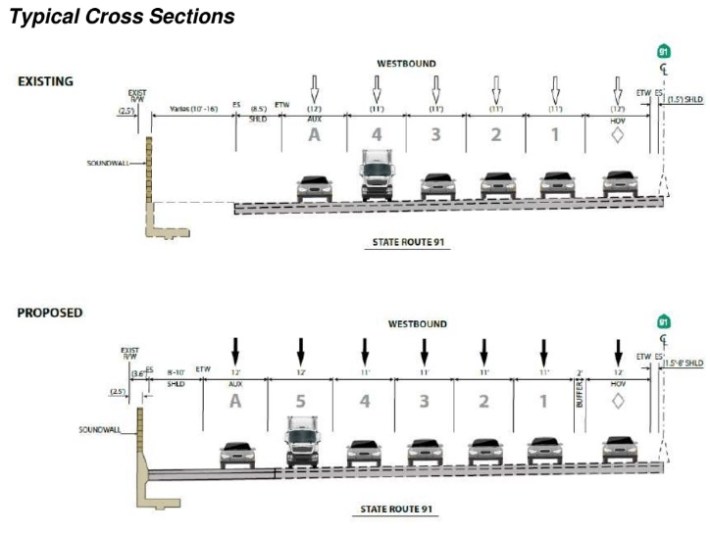
In this project's 2019 environmental clearance, a "finding of no significant impact" (FONSI), Metro and Caltrans had approved tearing down nearly a dozen homes and businesses in the city of Artesia. In 2021, under pressure to stop taking out homes to widen various freeways, Metro and Caltrans backed off the approved demolitions, instead planning to take only "sliver acquisitions" from various parcels including two parks and a high school.
Earlier this year, Metro approved using eminent domain to secure a sliver parcel for the project [staff report]. The sliver is located on the south side of the 91; the widening project is on the north side of the 91. Metro staff state that the land is needed to demolish and rebuild (widen, lengthen) the Shoemaker Avenue Bridge over the 91.
Metro estimates that adding this 4-mile long westbound lane will cost $162.4 million - about $40 million per lane-mile.
2 - Widening the Eastbound 91
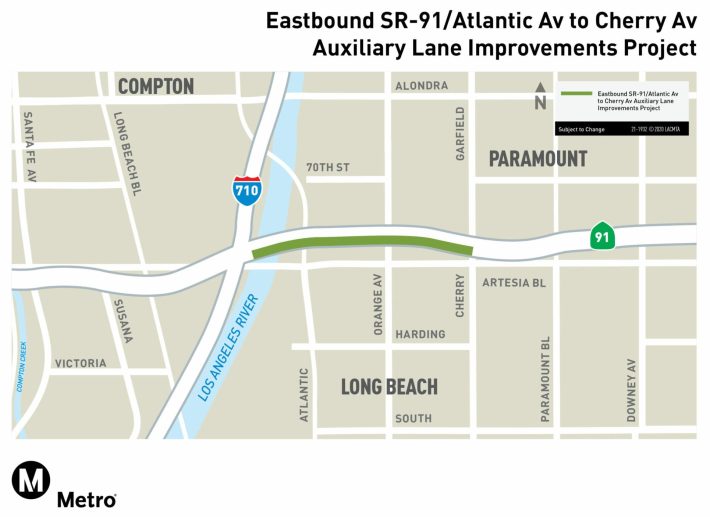
Metro and Caltrans plan to add one more eastbound lane on the 91 Freeway for just under one mile from Atlantic Avenue to Cherry Avenue, in north Long Beach. The added lane is an "auxiliary" lane - a car lane that extends from an onramp to the next off-ramp. Metro and Caltrans are breaking up lots of L.A. County freeway widening projects into dozens of less than one mile long aux lane segments (on the 91, 405, 605, and likely elsewhere), as that type of widening is exempt from full environmental review and environmental mitigation.
Metro and Caltrans' eastbound 91 widening was approved via a 2021 FONSI. The widening does not take out any homes, but expands the freeway into an existing tree-lined right-of-way owned by Caltrans.
Metro and Caltrans expect this 91 Freeway widening to cost $88-95 million - roughly $100 million per mile.
Other freeway expansion news in this week's Metro board cycle:
Additional Measure M highway funding: Metro staff are recommending that the board approve about $30 million in additional Measure M sub-regional funding programmed for the South Bay [staff report]. The money goes to various types of projects - from fiber optic cables to traffic data systems to traffic signals to transit centers.
The good news is that the new funding would go to several complete streets projects (Vision Zero in Lennox, bike lanes in Carson, and a couple others). The bad news is that it includes nearly $12 million in addition funding for "Highway Operational Improvements." The project descriptions do not include much detail. Several projects are traffic signal synchronization; others are vague arterial street "improvements" which often means widening streets leading to freeways.
71 Freeway Expansion Costs Ballooning: Metro and Caltrans are currently spending $180+ million to widen a mile and a half long stretch of the 71 Freeway in Pomona, via right-of-way where the agencies demolished nearly two dozen homes, and continue to pressure to evict a lone holdout. The project expands the four-lane freeway to eight lanes.
Metro and Caltrans plan a second phase - to be located north of the current widening. According to a new Caltrans presentation, the second "SR-71 North Segment" cost recently shot up from an anticipated $169 million to $309 million. Meanwhile Caltrans and Metro have allowed that northern portion of the 71 to fall into dangerous disrepair. In rainy weather earlier this year, that stretch developed potholes that caused flat tires for dozens of drivers.
